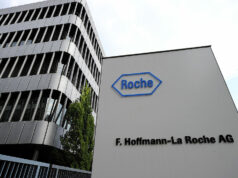
Shares of a biotech company developing cell and gene therapies took a hit Monday following following presentation of clinical data from several of its ongoing clinical trials, including a report of a sickle cell disease patient who developed a blood disorder.
The company, Cambridge, Massachusetts-based bluebird bio, announced Saturday the presentation of data from its ongoing Phase I/II HGB-206 study of the gene therapy LentiGlobin in sickle cell disease at the American Society of Hematology’s annual meeting in San Diego. According to the data, a patient who received the therapy three years ago developed myelodysplastic syndrome, or MDS, a type of blood disorder that is a potential precursor to acute myeloid leukemia. However, the company said analysis of the patient’s cells did not show evidence that the cancer resulted from the lentiviral vector used in the therapy, and both the independent data monitoring committee and the patient’s treating physician agreed it was not likely related to the therapy.
Still, STAT reported that while the company was unable to pinpoint the cause of event, an executive said it was likely due to the chemotherapy regimen used for myeloablative conditioning, a drug called busulfan, noting that patients receiving the drug for myeloablative conditioning for stem cell transplant have been known to develop MDS.
Nevertheless, shares of bluebird bio opened down 7.2 percent on the Nasdaq from their $122.89 closing price Friday, reaching a nadir of $110.30 by mid-morning. Their price had recovered somewhat Monday afternoon, but was still well below Friday’s closing price.
The share price tumble happened despite otherwise encouraging data from the HGB-206 study. The data showed that most of the nine patients in two cohorts – one that received LentiGlobin made under a previous manufacturing process, and another that received the drug made using a newer process – achieved stable production levels of anti-sickling hemoglobin, known as HbAT87Q, and a reduction in vaso-occlusive events.
Additional encouraging data in other therapeutic areas also did not prevent the share price’s fall. Data from the HGB-204 study of LentiGlobin in transfusion-dependent beta-thalassemia showed that all patients with the disease and a non-beta-zero/beta-zero genotype who achieved transfusion independence had maintained it for up to 3.5 years. Meanwhile, data from a Phase I study of bb21217, a CAR-T therapy for multiple myeloma considered a successor to bb2121 showed an early safety profile consistent with other CAR-Ts and an 83 percent response rate among 12 heavily pretreated patients who received the first dose level. Like bb2121, bb21217 targets the BCMA antigen, and the study is currently assessing a higher dose of the therapy.
In the original manufacturing process, patients showed stable HbAT87Q production, but not at the levels anticipated. In response, the company amended the study protocol to include pre-harvest transfusions of red blood cells, higher dosing of busulfan for myeloablative conditioning and a refinement of the manufacturing process, according to the abstract for the study on the ASH conference website.
Another company, Cambridge, Massachusetts-based Magenta Therapeutics, also presented preclinical data on a targeted myeloablative conditioning drug that it is developing. The drug, C200, is an antibody-drug conjugate targeted to CD117 designed as a non-genotoxic conditioning regimen. The data presented showed the drug to be effective in mice as well as stem cells derived from humans and non-human primates. The company plans next year to start studies that will enable clinical development of the drug.
Photo: jxfzsy, Getty Images








